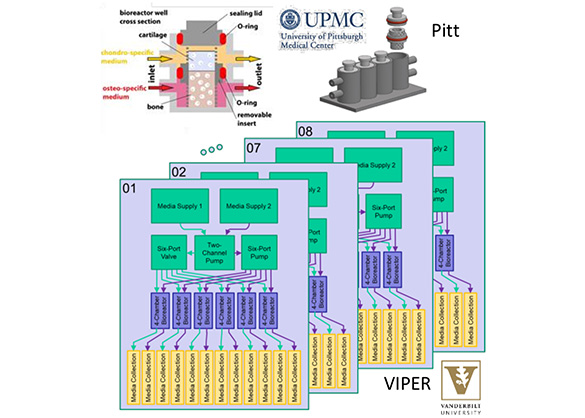An Automated, Instrumented Evaluation Platform for Validating The Performance of a Novel, Integrated Microfluidic Pump and Valve Experiment Control System for Tissue-Chips-In-Space and Chemical Mixing
PI: John Wikswo, Vanderbilt University, Peter Alexander (Co-I), University of Pittsburgh
PI: John Wikswo, Vanderbilt University, Peter Alexander (Co-I), University of Pittsburgh

- TA06 Human Health, Life Support and Habitation Systems
This technology is a novel, general-purpose, automated microfluidic experiment control platform optimized for use in volume-limited space vehicles. It is designed to meet the challenge of performing dynamic, small, fluidic volume experiments in space. This test is to demonstrate the robustness and basic functionality of the device and control system for experimental protocols.
The VIPER platform has been extensively tested in ground-based laboratories but has not yet been tested in launch, orbital microgravity, or recovery. Demonstration of its robustness and reliability during and after a suborbital flight will help move the technology into the space-based research and commercial arena.
This microfluidic control design is suitable for a wide range of NASA and commercial orbital experiments, including biological or chemical automated protocols such as stem cell differentiation protocols, tissue engineering for regenerative medicine and repair of radiation damage, long-term perfused sentinel cell maintenance, low-gravity chemical combinatorics using laminar-flow diffusion- based interfaces, combined component crystallization processes, and many others.
Technology Details
-
Selection DateTechFlights19 (Oct 2019)
-
Program StatusActive
- 0 sRLV
Development Team
-
PIJohn Wikswo
-
PI Organization
-
Co-IPeter Alexander
-
Co-I Organization
-
SponsorNASA
-
More Information

